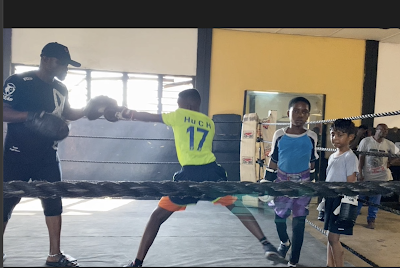Wed--Kwei
Annamaria’s piece about the universality of girls’ suffering got me thinking about this phenomenon. I won’t get too much in the psychological weeds in this post, but although the post is a little “light,” the topic isn’t.

What is toxic masculinity?
Definitions: Masculine toxicity is a set of cultural and societal norms of masculinity that emphasize physical violence, aggression, emotional repression, as well as homophobic and sexist behaviour as the way men are “supposed” to act. The elements include
- Misogyny
- Homophobia
- Discrimination against anything other than heterosexuality
- Aggression
- Being “stoic"
- Physical and mental toughness (don’t cry like a little bitch")
- Emotional insensitivity
- Self-sufficiency (“I don’t need your help”)
Many of these are reflected in societally sanctioned aphorisms like, “don’t be a pussy/bitch;” “be a man:” “man up;” “boys don’t cry;” “suck it up;” “boys will be boys,” etc. In toxic masculinity, deviation from the traits above would be labeled as “weak."
Terminology of toxic masculinity
In response to a question, how or when toxic masculinity started, someone replied, “How far back would you like me to go?"
The societal concept of masculinity obviously dates back millennia, but in the modern age a movement called the mythopoetic men’s movement (MMM) developed in response to the second wave of women’s movement of the 1980s and nineties. It originated in psychoanalysis modeled on Carl Jung’s theories, and the term “toxic masculinity”arose then as well. But it was rarely used in media and almost never in academic writing until around 2015.
One result of the MMM is the Mankind Project in which males bond with each other in non-sexual fashion, including “wild men" excursions into the wilderness. Circles are made, and men are encouraged to share their feelings, listen and be listened to, and supported by their fellows. The excursions aim to liberate men from the usual shackles of society--phones, TV, social media, etc.
Cultural norms and toxic masculinity
When I was in Ghana in 2021, I went to a part of town called Jamestown, which happens to be where my father was born. Jamestown and neighboring Bukom are famously known to have produced five world boxing champions like Ike Quartey (possibly a fourth or so cousin). Boxing in Bukom is life itself. Kids start almost as soon as they can walk. Boxing is disciplined fighting, but on the streets of Bukom, it’s a different matter. If a fight arises or someone tries to “diss" you, you would have to protect your honor and either attack or defend yourself. While I was there, I witnessed one chaotic physical exchange between two young men as I was leaving a chop bar with a soda. The point is that fighting with one’s fists is thoroughly sanctioned in Bukom where boxing is king. Is it toxic masculinity? Arguably so, but if it’s an honor code in Bukom that you fight to defend yourself, is it really toxic masculinity, or is it social norms? I’m not sure, really. All I know is that fighting with my fists to solve an issue wouldn't be my first choice I probably wouldn’t survive in Bukom.
Toxic masculinity and social change
The #MeToo movement represented one of the most important challenges to toxic masculinity in the workplace. It called out bullying, misogyny, assault and rape in different settings and examined why particularly odious men like Harvey Weinstein in positions of power are permitted to serially offend and get away with it. It has opened many men’s eyes and new awareness of the garbage women go through--not only once in a while, every day.
Next: Toxic masculinity in the workplace
















I would argue that, yes, fighting with your fists (and feet and forehead) is certainly "toxic masculinity." It's the "might makes right" attitude that harkens back to our earliest animal origins. One could certainly argue that it's just a "social thing," but it certainly wouldn't be a society in which I'd care to participate.
ReplyDeleteFrom AA: Thank you for this, Kwei. It’s wonderful to have you in our side.
ReplyDelete